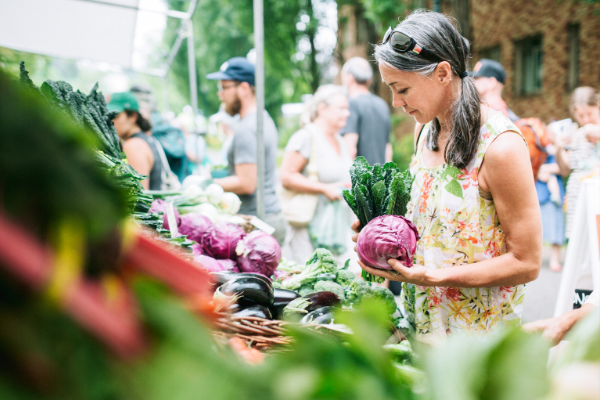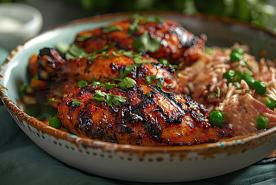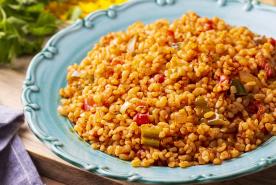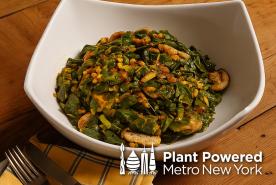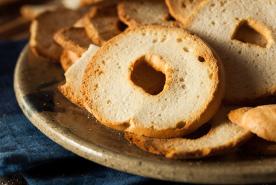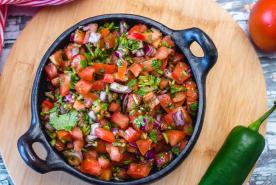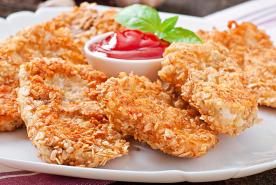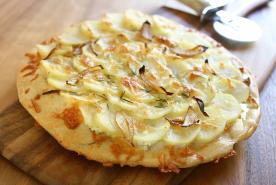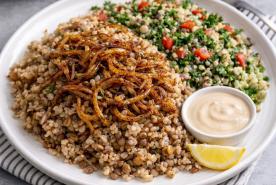July 22, 2022
While fruits and vegetables contain potassium, people following a potassium-restricted diet can still enjoy a wide array of colorful, delicious, and versatile options. Here are 40 low-potassium fruits and vegetables you can add to your grocery cart. Maybe not all at once…but we’ll leave that decision up to you.
What is potassium?
Potassium is an essential nutrient that helps the body function properly. It helps your nerves, muscles, and heart work the right way. However, people with kidney disease can experience dangerous levels of potassium, called hyperkalemia, if they consume too much because the kidneys aren’t able to remove the excess. Hyperkalemia is a serious health condition that can cause irregular heartbeat or a heart attack. A simple blood test and your kidney disease stage will determine whether your potassium levels are too high.
Join the NKF Blog Newsletter
Get inspirational stories and kidney disease resources delivered to your inbox every month. You'll gain practical insights and expert advice to help you better understand and manage your kidney health no matter where you are on your kidney journey. Subscribe today.
Diet is your first line of defense
It’s important to have the right amount of potassium in your diet- too little can also cause problems! Ask your doctor what your potassium levels should be, and use a dietitian to help you plan your diet properly.
Find a kidney dietician near you.
And remember,
- Serving size matters. A large serving of low-potassium food can turn into a high-potassium food.
- Aim for 2-3 servings of low potassium fruits each day.
- You can leach potassium from vegetables before cooking. Leaching is a process by which some potassium can be pulled out of the vegetable. Learn how to leach vegetables.
Low-potassium fruits
| Fruit | Serving size |
| Apple | 1 medium |
| Applesauce | ½ cup |
| Apricots, canned in juice | ½ cup (drain liquid first) |
| Blackberries | ½ cup |
| Blueberries | ½ cup |
| Cherries | ½ cup |
| Cranberries | ½ cup |
| Fruit cocktail | ½ cup (drain liquid first) |
| Grapes or grape juice | ½ cup |
| Grapefruit | ½ whole |
| Mandarin oranges | ½ cup |
| Peaches | 1 small fresh or ½ cup canned |
| Pears | 1 small fresh or ½ cup canned |
| Pineapple | ½ cup |
| Pineapple juice | 4 ounces |
| Plums | 1 whole |
| Raspberries | ½ cup |
| Strawberries | ½ cup |
| Tangerines | 1 whole |
| Watermelon | Limit to one cup |
Low-potassium vegetables
| Vegetable | Serving size |
| Alfalfa sprouts | ½ cup |
| Asparagus | 6 spears |
| Beans, green or wax | ½ cup |
| Broccoli (raw or cooked from frozen) | ½ cup |
| Green cabbage | ½ cup |
| Red cabbage | ½ cup |
| Carrots, cooked | ½ cup |
| Cauliflower | ½ cup |
| Celery | 1 stalk |
| Cucumber | ½ cup |
| Eggplant | ½ cup |
| Kale | ½ cup |
| White mushrooms, raw | ½ cup |
| Onions | ½ cup |
| Peas, green | ½ cup |
| Peppers | ½ cup |
| Yellow squash | ½ cup |
| Zucchini squash | ½ cup |
| Radish | ½ cup |
| Water chestnuts, canned | ½ cup |
Learn more about high potassium and nutrition.
